The top 10 in terms of the number of MSMEs is dominated by the larger states with Uttar Pradesh in lead spot.
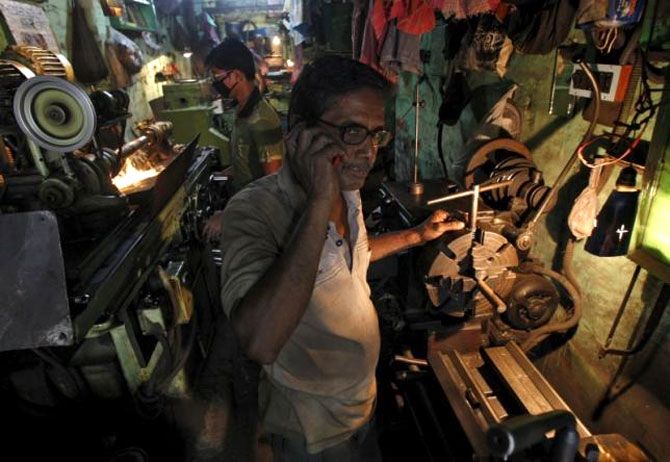
Micro, Small & Medium Enterprises (MSMEs) are by far the largest non-farm employers in the country, employing more than 110 million people. While MSMEs have been growing at a consistent rate contributing significantly to India’s GDP & exports, they face a threat from cheap Chinese imports, according to Factly.in, a data journalism portal.
MSMEs – Number & employment
According to the 2014-15 annual report of the Ministry of Micro, Small & Medium Enterprises, the number of MSMEs and the employment generated by them have been increasing consistently. The number of MSMEs has increased by about 20 per cent to 48.8 million in 2013-14 from 41.1 million in 2009-10. The employment generated by the MSMEs has also grown on similar lines to 111.4 million in 2013-14 from 92.2 million in 2009-10, representing a 21 per cent increase.
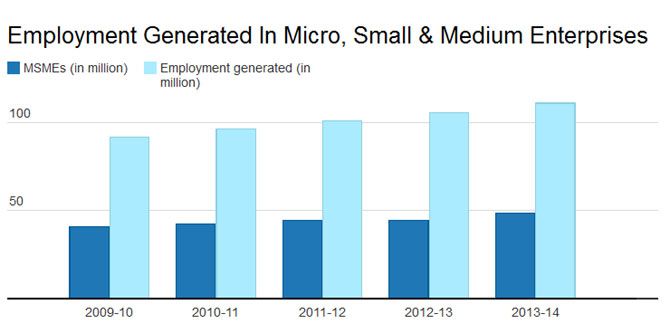
The average number of employees per establishment hasn’t changed much in the five years from 2009-10 to 2013-14. It has remained more or less constant, at around 2.3 employees per establishment. While this may not be very high, a large number of these enterprises are one-man establishments.
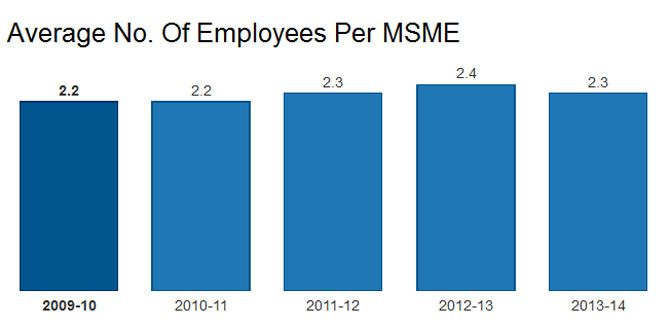
Spread in the states
As expected, the top 10 in terms of the number of MSMEs is dominated by the larger states with Uttar Pradesh at the top with 4.4 million MSMEs. West Bengal has around 3.7 million followed by Tamil Nadu (3.3 million), Maharashtra (3.1 million), Andhra Pradesh (2.6 million) in the top five. The other states in the top 10 are Kerala, Gujarat, Karnataka, Madhya Pradesh & Rajasthan. The only notable exception in this list is Bihar.
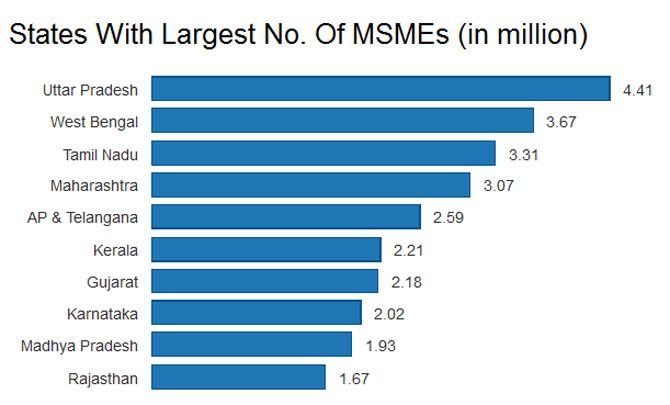
According to the fourth All India Census of MSMEs, more than 92 per cent of enterprises are in the unregistered sector and these account for more than 81 per cent of employment. Less than 8 per cent of the enterprises are in the registered sector accounting for more than 18 per cent of employment.
Share in GDP & exports
The contribution of MSMEs to the country’s GDP & exports is significant. According to the MSME ministry, the estimated contribution of the MSME sector to the GDP has been more than 35 per cent consistently from 2009-10 to 2012-13. While it was 36 per cent in 2009-10, it has grown to 37.5 per cent in 2012-13.
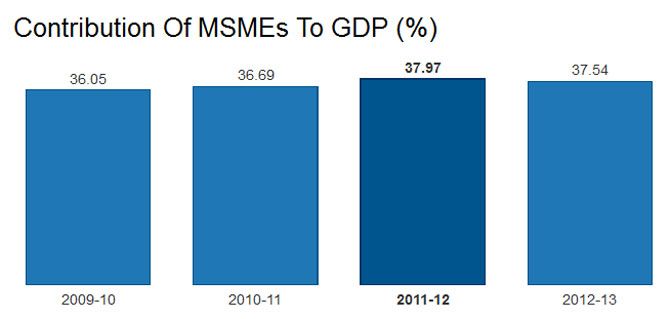
Based on the export data maintained by the Director General of Commercial Intelligence & Statistics, the share of MSMEs in India’s total export has been more than 40 per cent in the past 3 years. From 43 per cent in 2012-13, it has grown to 44.7 per cent in 2014-15. MSMEs contribute nearly half of India’s exports.
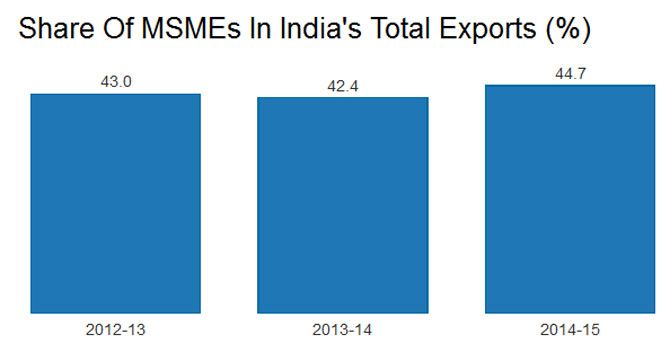
The Chinese import threat
India’s trade deficit with China has been on the rise on account of decreasing exports and increasing imports. The trade deficit in 2014-15 has gone up to $48.5 billion. Indian MSMEs also face tough competition from cheap Chinese products as is evident in the high growth of India’s imports from China.
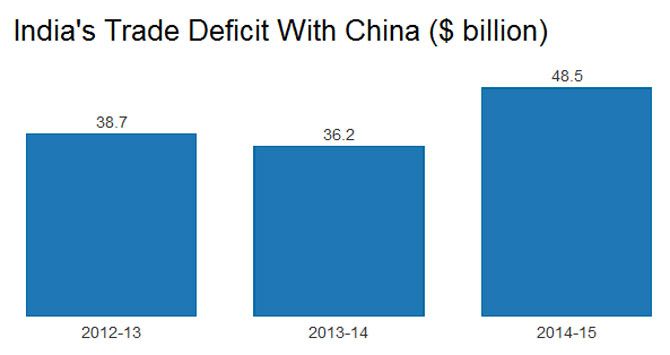
As per information compiled by the Director General of Commercial Intelligence & Statistics, in 12 major product groups, largely manufactured by MSMEs in India, imports from China grew at a higher rate than their respective imports from all other countries combined during 2011-12 to 2014-15. These 12 product groups accounted for 74 per cent of India’s total imports from China in 2014-15 and a significant proportion of Indian MSMEs seem to be adversely affected from Chinese imports.
These 12 product groups pertain to electrical and electronic goods, mechanical and metallurgical products on the one hand and chemical, glass- & ceramics-based products on the other.
The government on its part has been imposing anti-dumping duties, permitted under the World Trade Organization (WTO), for restricting imports when such imports have been established as unfairly affecting the market for goods and services produced by Indian industries. As per data available with the Directorate General of Anti Dumping and Allied Duties (DGAD), around a quarter of all the cases initiated since 1994 are against China. Till June 2014, a total of 166 such cases of anti-dumping duty have been initiated against China and duty has been imposed in 134 such cases.
With regards to taking any strict action, India seems to be bound by the WTO framework. While India has initiated certain actions such as mandating BIS certification for certain products & prohibiting import of mobiles without an IMEI number, a lot more needs to be done if this threat has to be countered. There has to be a greater focus on export-oriented sectors.
Rakesh Dubbudu has been working on issues related to the Right to Information for a decade. He is a data/information enthusiast & is passionate about governance/policy issues. Factly.in is dedicated to making public data meaningful.
Indiaspend.org is a data-driven, public-interest journalism non-profit






